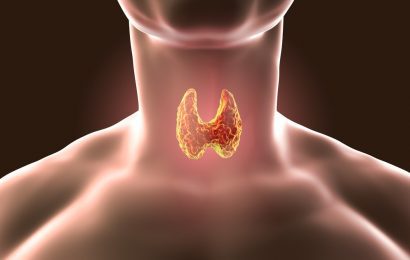
The thyroid gland, a small but influential organ in the endocrine system, plays a crucial role in regulating the body’s metabolism through the production of various hormones. When this finely tuned system encounters imbalances or diseases, it can have far-reaching effects on one’s health and well-being. To effectively diagnose thyroid-related issues and guide treatment, healthcare providers rely on a battery of tests. In this article, we will explore the essential components of thyroid testing and interpretation, including TSH, T3, T4, and antibodies, in the context of thyroid hormony i choroby.
The Thyroid Hormones: T3 and T4
Thyroid hormones, specifically triiodothyronine (T3) and thyroxine (T4), are the key players in the thyroid’s role in metabolism regulation. These hormones are produced by the thyroid gland and are responsible for influencing energy production, temperature regulation, and numerous other physiological processes.
- T3 (Triiodothyronine): T3 is the more active and potent thyroid hormone. It has a significant impact on metabolic rate, heart rate, and body temperature.
- T4 (Thyroxine): T4 is the precursor to T3, and it is primarily produced by the thyroid gland. T4 is converted into T3 in various tissues throughout the body, where it becomes the active form.
Thyroid Stimulating Hormone (TSH)
Thyroid Stimulating Hormone (TSH) is a hormone produced by the pituitary gland in the brain. Its role is to regulate the thyroid gland’s production and release of T3 and T4. When thyroid hormone levels in the blood drop too low, the pituitary gland releases more TSH to stimulate the thyroid gland to produce more hormones. Conversely, when thyroid hormone levels are high, TSH production decreases.
TSH is a critical marker in thyroid testing because it can indicate whether the thyroid gland is functioning properly or if there is an issue that requires further investigation.
Thyroid Antibodies
In some cases, thyroid diseases are caused by autoimmune processes in which the body’s immune system mistakenly attacks the thyroid gland. Two common thyroid antibodies associated with autoimmune thyroid diseases are thyroid peroxidase antibodies (TPOAb) and thyroglobulin antibodies (TgAb).
- TPOAb: Elevated levels of TPOAb can indicate autoimmune thyroid diseases, such as Hashimoto’s thyroiditis, where the immune system attacks the thyroid gland, leading to hypothyroidism.
- TgAb: Elevated levels of thyroglobulin antibodies are often associated with autoimmune thyroid diseases and thyroid cancer.
Interpretation of Thyroid Test Results
Interpreting thyroid test results involves assessing the levels of TSH, T3, T4, and antibodies in the blood. Here are some general guidelines for interpretation:
- Normal Thyroid Function: In a healthy individual, TSH levels typically fall within a certain range, and T3 and T4 levels are in balance. Antibodies are generally not present at elevated levels.
- Hypothyroidism: Elevated TSH levels with low T3 and T4 levels may indicate an underactive thyroid, a condition known as hypothyroidism. Elevated TPOAb or TgAb levels can suggest autoimmune thyroid disease as the cause.
- Hyperthyroidism: Low TSH levels with elevated T3 and T4 levels may indicate an overactive thyroid, or hyperthyroidism. In some cases, elevated TPOAb or TgAb levels may also be present.
Conclusion
Thyroid testing and interpretation play a pivotal role in diagnosing and managing thyroid diseases and imbalances. These tests, which assess levels of TSH, T3, T4, and thyroid antibodies, provide valuable insights into thyroid function and potential underlying conditions. Understanding the significance of these tests is essential for healthcare providers to make accurate diagnoses and tailor treatments. Regular monitoring and collaboration between healthcare professionals and patients are key to effectively managing thyroid health.

Leave a Reply